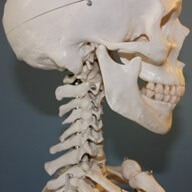Proper chewing hygiene is an often overlooked but crucial aspect of overall health. You may think chewing is important to your oral health, but it is important to your overall GI, gastrointestinal health too!
Ensuring good chewing hygiene involves understanding the correct techniques for chewing, the benefits of proper mastication, and the potential risks associated with poor chewing habits. Did you know you need to chew 30 times before you swallow your food!
The Mechanics of Chewing
*Proper chewing requires using both sides of the mouth evenly to avoid uneven wear on the teeth. It’s essential to chew food thoroughly until it becomes a soft, well-mixed mass. This generally means chewing each bite about 20-30 times, depending on the type of food.
Did you read that right?
You need to chew 20-30 times before you swallow with each bite!!
Proper chewing:
- Improved Digestion: Thorough chewing breaks down food particles into smaller pieces, making them easier to digest. This helps prevent digestive issues such as bloating, gas, and indigestion. Properly chewed food mixes well with saliva, which contains enzymes like amylase that begin the digestion of carbohydrates in the mouth.
- Nutrient Absorption: Proper mastication allows for better absorption of nutrients. When food is broken down adequately, the stomach and intestines can extract nutrients more efficiently. This ensures that the body gets the maximum benefit from the food consumed.
- Dental Health: Chewing stimulates the production of saliva, which helps neutralize acids produced by bacteria in the mouth. This protects teeth from decay and helps maintain healthy gums. Saliva also contains calcium and phosphate, which are essential for repairing tooth enamel.
- Weight Management: Chewing food thoroughly can help with weight management by promoting a sense of fullness. It takes about 20 minutes for the brain to receive signals of satiety from the stomach. By eating slowly and chewing properly, individuals are less likely to overeat.
Risks of Poor Chewing Habits
- Digestive Problems: Inadequate chewing can lead to large food particles entering the digestive tract, causing issues like indigestion, bloating, and gas. These undigested particles can also contribute to the growth of harmful bacteria in the intestines.
- Nutrient Deficiency: Poorly chewed food is not broken down effectively, which can impede the absorption of essential nutrients. Over time, this can lead to deficiencies and associated health problems.
- Dental Issues: Failing to chew food properly can result in uneven wear and tear on teeth. It can also lead to tooth fractures, especially if hard foods are not broken down adequately before swallowing. Furthermore, insufficient chewing reduces saliva production, increasing the risk of tooth decay and gum disease.
- Choking Hazard: Swallowing large, unchewed pieces of food increases the risk of choking. This is particularly dangerous for young children and the elderly, who may have difficulty chewing or swallowing.
Tips for Good Chewing Hygiene
- Take Smaller Bites
- Chew Slowly and Mindfully
- Stay Hydrated
- Regular Dental Check-ups
Proper chewing hygiene is essential for maintaining overall health and well-being.
Simple practices like taking smaller bites, chewing slowly, and staying hydrated can make a significant difference. Prioritizing proper chewing hygiene is a small but impactful step towards a healthier lifestyle. You may have TMJD – Temporal Mandibular Joint Disorder.
TMJD can be caused by a jaw injury, arthritis, genetics, or even teeth grinding. Stress and anxiety can also contribute to teeth clenching and make the pain worse!

The relationship between the three bones determines the likelihood of you having pain. Making sure that the spine is aligned properly, that the skull is resting on the spine properly and that the jawbone is aligned properly to the skull is important.
If any one of these areas are off problems can arise. When I assess your TMJ, I have you open and close your mouth. I look to see if the jaw deviates to one side. Go Look in a Mirror now, see how your mouth opens and closes. The instrument I use, whether it is the Impulse IQ or the Activator, will assist in supporting the proper alignment of the spine, skull and TMJ.
It is not fun to have the muscles inside your mouth worked on, but it does provide a great relief!
I recommend particular exercises to help strengthen the jaw in the proper alignment. If you are experiencing pain or any issues, let me know!
Test or respond to this email if you have any questions about TMJD or would like to have your TMJ assessed.
Yours in Health Naturally,
Dr. Kelly
